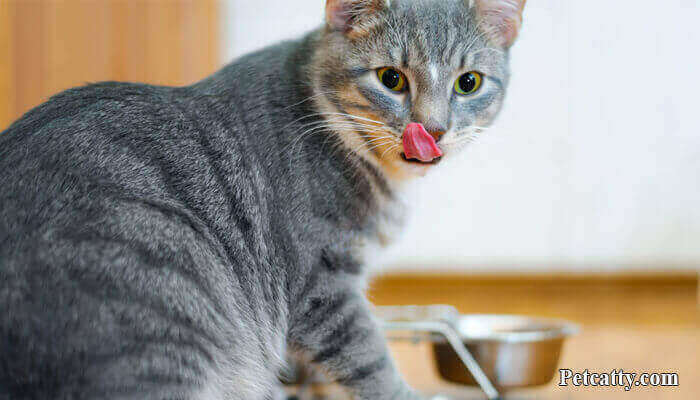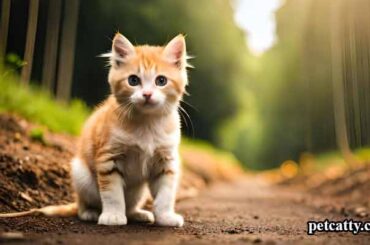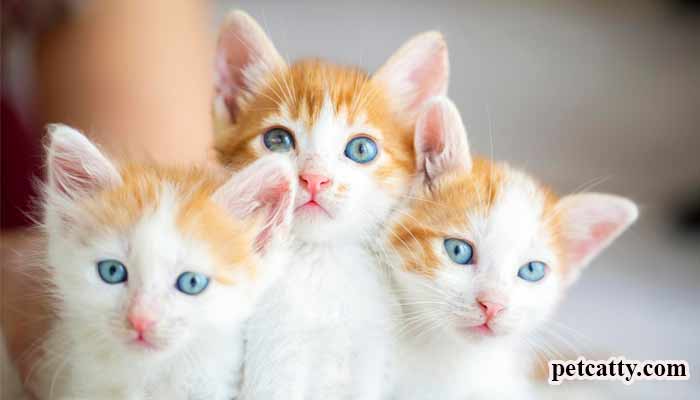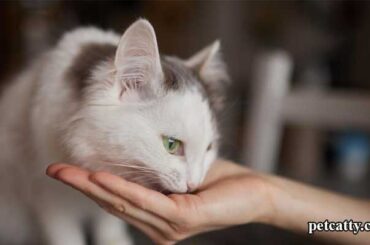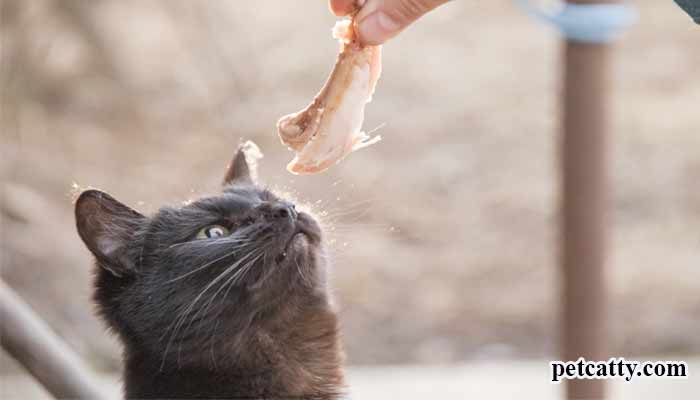Yes. Sugar would be an enticing ingredient for the cat. They might become addicted to sugar base food if you feed them regularly. However, it is advisable that the food that you provide to your cat must be put in the moderated condition.
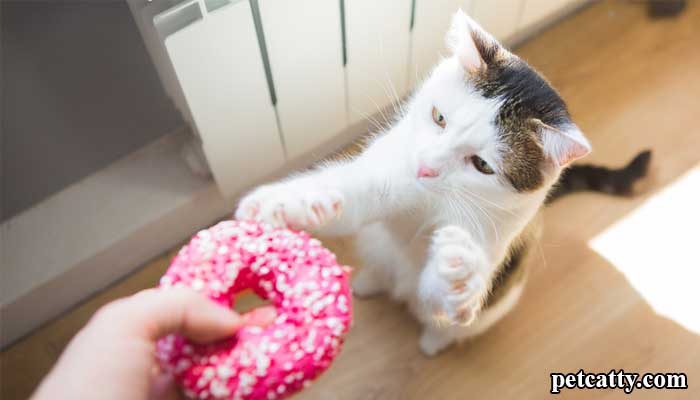
Do cats like sugar?
Yes. Your cat will appreciate it if you add some sugar to breakfast. Human’s foods are not suitable for the cat. Cats’ digestive system works differently than humans. They cannot digest all the food that you feed them and enjoy on your dinner table.
Consuming too much sugar content would make their cat ill. In addition, sugar may produce several health issues on the cat and make them difficult to protect from internal damage.
Also, sugar is the primary source of obesity. Access amount of it in the body would also contribute to heart diseases and diabetes. Do not feed the sugar to the cat without consulting the veteran.
What happens if my cat licks sugar?
Humans might be addicted to the sugar and product made of it, but the cat would not appreciate sugar the way humans do. This is because cat’s taste buds sense the sugar in entirely different ways. Cat doesn’t have the taste buds that feel the sweetness.
In the cat, 247 pairs of amino acids produce the DNA of the Tas1r2 gene. The chemical does not allow the taste bud to experience the sweetness in the food. In contrast, the cat taste buds can have a sense of bitterness but not sweetness.
So when the cat licks sugar, they will never find what this substance is and why you have offered them.
You might feel that the cat is enjoying the way we humans want the sugar, but this is not what happens to your cat’s brain. If your purpose is to make your cat enjoy the food with slight sweetness, then the sugar will not help anyway.
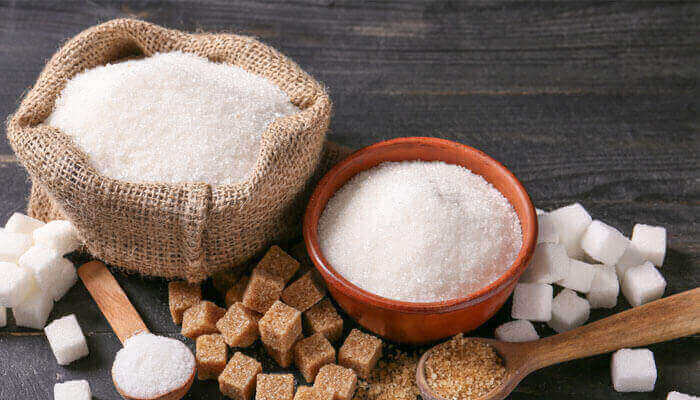
What sweet things can cats eat?
A cat cannot taste the sweet; therefore, it may not desire to have sugar in it. Moreover, if you are willing to offer them anything that tastes sweet to the humans, you can try some fruits. The citrus fruit would have essential vitamins which will contribute to the growth of the cat.
Sweet food is not part of the cat’s daily routine. When you offer food to the cat, they may eat it because they are hungry, but it may negatively affect their health. It may cause several health issues in them.
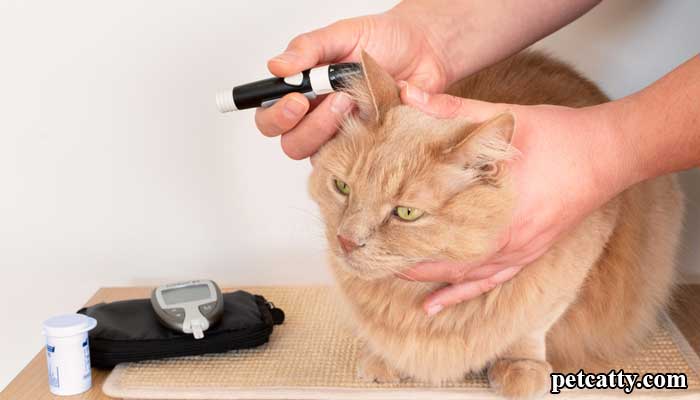
Long term health issues due to sugar consumption in the cat
Cat generally needs fewer calories as they mostly spend their time sleeping in the house. Also, the low activities reduce the calorie-burning process. If a cat does not perform physical activities would not require many calories.
Type 2 diabetes
Feeding cat sugar would have the access amount of calories which may make your cat obese. It will hurt the cat’s health. An obese cat will suffer from various health conditions, and some may develop serious problems such as cancers. Type 2 Cat diabetes and insulin resistance are the most common problems the cat would have in them.
Sugar is not suitable for oral health. Consuming too much of it would develop oral problems. Gems attack, and teeth damage is caused. Not moderating the sugar content would have a severe effect on the teeth.
It will eventually convert to serious mouth infections. As the bacteria take place in the mouth, they will enter the bloodstream. Once these harmful bacteria survive in the blood, they reach vital organs like the heart, liver, and kidney.
What foods are toxic to cats?
Once your cat becomes a full-fledged family member, there will be many occasions when your cat gets to eat human foods. It is often thought that the cat can eat anything found on the dinner table.
But do you know, not all human foods are safe for the cat. Hence, you should know what to feed your cat and at what quantity.
A cat may have them when they are offering particular food if it doesn’t smell or taste bad, but they cannot identify the best food for their health. Above all, the food you are feeding to your cat from your dinner table might severely impact the cat.
Some people have asked, “Can cats have whipped cream?” possibly yes, the cat may eat the whipped cream. But remember to moderate the consumption to avoid a fatal impact on the health.
Not all food is good for the cat. Many of the food found in the kitchen are harmful to the cat. Only a meat-based diet is good for the cat.
Everything else you feed your cat may have health issues. Therefore, when you feed your cat, ensure that you know everything about the cat food and its digestive system.
You might have a question, “Can cats drink apple juice?”Well, you can give a cat some amount of apple juice, but not an extensive form. Use it in the moderated form. Too much apple juice is also not suitable for the cat.
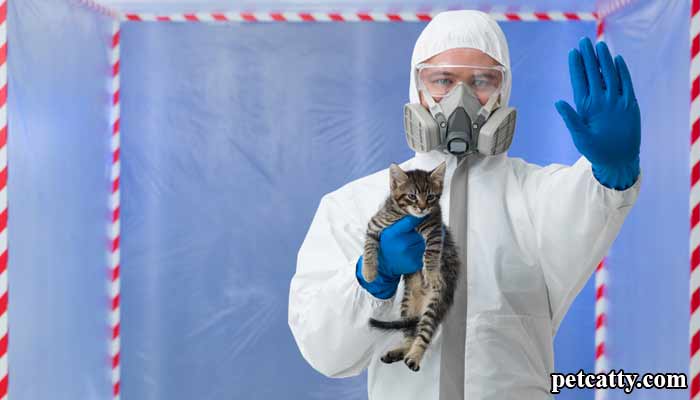
Here is the extended list of the human food that is toxic to the cat
1) Chocolate
Chocolate contains a chemical called methylxanthines. It is toxic for the cat and may cause them to feel dizzy. Common symptom after the consumption of the Chocolate is diarrhea, tremors, vomiting, and seizures.
If a cat is already going through other health problems, there are changes, and they might not survive from the illness caused by the Chocolate.
2) Alcohol
Any food that contains alcohol is not suitable for the cat. It can cause severe issues in the cat over time. Breathing problems, coma, and death can cause after consumption of alcohol.
3) Product containing yeast
Yeast causes the gas to build up during the digestive process. As a result, stomach bloating is a common problem you experience in the cat. A cat may feel pain in the stomach, and sometimes the pain becomes too severe that it will stress out your cat.
4) Dairy
Feeding your cat dairy product would make them have stomach problems. Some cats are lactose intolerant. Offering them milk, cheese, yogurt, and various other dairy products would make them ill. Please consult with the veteran before providing them a dairy product.
5) Salt
Food with too much salt would also have various health issues. For example, vomiting, tremors, seizures, and diarrhea are common health issues developed after consuming salt.
Read the statement of ASPCA Animal Poison Control Center

